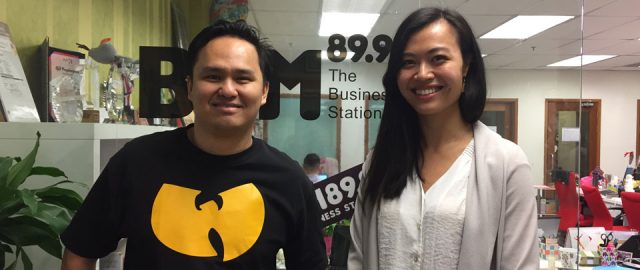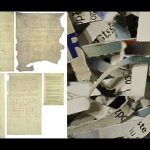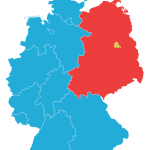When Sandy Chang was in Kuala Lumpur, Malaysia to give a talk about her research on women migrants in Asia, she was invited to make a podcast on the subject of her research. Chang was interviewed at the studio of the independent radio station, Business Station (BFM 89.9), that focuses on business news and current affairs. BFM also broadcasts the podcast, “Night School,” which deals topics on a range of social issues. Most of their audience would be English-speaking Malaysians. The show is catered towards a general audience with interest in the humanities and social sciences.
[You can listen to the podcast online here. Or you can click on the link below.]
We asked Sandy if she enjoyed talking about her research and making it accessible to the public. She said:
“This was my first radio experience! I’m so glad it wasn’t live – it was pre-recorded in the studio two days in advance, but nonetheless, I was still very nervous. However, it was a great experience to practice speaking about my work to non-specialists in a short and concise way – but also in a way that would be appealing and exciting to listeners. Speaking about my work in this way was actually really refreshing. It rekindled a lot of the joy I sometimes feel doing archival research, but which can be easily forgotten when I’ve been away from home for months doing mostly solitary work. In that sense, I enjoyed sharing the frustrations and delights of the archival process, and also interesting anecdotes about female migrants from my findings.”
We also asked her if doing public history of this kind has had an impact on her own professional work:
“I am not sure if there are any long-term impacts on my professional work. But, I did feel like it was both important and necessary to share some of my research with local listeners outside the university setting. I feel indebted to many of the participants in Malaysia who generously shared their family stories and private collections with me. This kind of public history offers a kind of exchange, so I can share what I’ve learned from them with them, and also a broader public audience.”
And in the end she added:
“Recording a podcast is fun, and engaging with a broader public audience should also be an important part of our training as historians!”
Here at Not Even Past, we wholeheartedly agree!![]()
See also:
Sandy Chang, “A Historian’s Gaze: Women, Law, and the Colonial Archives of Singapore“





